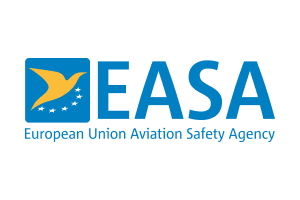How to keep operators proficient during and after COVID-19
With the COVID-19 crisis resulting in the widespread grounding of pilots and air traffic controllers in both civil and military operations, low operator proficiency and recency is a threat as operations resume. Royal NLR is actively evaluating proficiency risks and recovery strategies based on operator performance and training research. We provide practical advice and innovation solutions to recover and maintain the performance you expect from your operators.
The COVID-19 crisis has drastically reduced on-the-job experiences for nearly all operators in civil and military flight operations. Furthermore, national lockdowns have in some cases also restricted simulator and classroom training activities, and both factors result in a decay in operator proficiency.
As operations have only slowly resumed through 2020, the operational scene presents unique challenges to manage. While some pilots have maintained recent experience (e.g. in the cargo transport sector), many have experienced an unfamiliar gap of multiple months since their last flight. Similarly, Air Traffic Controllers (ATCOs) no longer experience traffic densities they are used to and lose their recency to manage complex situations. Therefore, many oversight and safety programs need to balance an opaque, unclear risk with the drive to return to operations, both civil and military.
Guidance on skill and knowledge decay
Royal NLR has contributed its training and operator performance knowledge in an international Safety Item Task Team lead by the European Aviation Safety Agency (EASA) in the summer of 2020. This task team has developed guidance material to assess and to mitigate the unique risks of widespread and prolonged operator skill and knowledge decay. Together with experts representing several operator types in our industry, this guidance material is a first step toward preventing new proficiency decay risks from manifested as incidents and accidents. In addition, the timely prevention and recovery of proficiency decay allows organisations to be more versatile and resilient in a still uncertain path toward normal operations. You can find the EASA document here. Feel free to contact us if you want to learn more about the guidance provided, and discover how NLR can help in assessing the risks of proficiency decay, and develop mitigating strategies.
Five key considerations
Based on experience and insights in operator performance and training, NLR has identified five key elements that may empower your recovery plans related to the proficiency of pilots, ATCOs, maintainers or other operators:
- Understand where the most proficiency decay occurs: Many factors affect competency and skill decay, including operator recent and total experience, operator age, and the nature, complexity and type of complexity of the tasks.
- Make training adaptive: If training resources are limited, it is important to use them as efficient as possible, adjusting training topics and quantity to match person- and task-related proficiency decay.
- Choose the most effective training environment: Many skills and competencies can be recovered more effectively by blending established, alternative and innovative training environments. By leveraging use of digital innovations and remote training solutions, the valuable time in FSTD and other limited training resources is used to greater effect. For choosing the appropriate training media, we refer to our CAPABLE solution.
- Integrate operations and training: Manage proficiency decay by a smart integration of training and operations. Even with strongly reduced operations, the smart scheduling of operators can prevent deep skill and competency decay, in particular when using an Aviation Blended Learning Environment (ABLE).
- Use self-directed training: Self-directed training extends the previous four strategies with a personal judgement in one’s own skill and competency decay, training needs and learning preferences. In addition, it can relieve training operations by extending instructor-led training with home- or peer-to-peer learning, and address operators’ self-efficacy.
How we can help you recover faster, safer and more efficient
NLR has an extensive background in assessing operator performance and building training programs, and can help integrate and optimise these five considerations to maintain operator proficiency, as well as support you in specific situations you may be experiencing.
For airlines and civil operators
NLR can support you in reconfiguring training programs to mitigate skill decay during and after restarting operations, while adhering to existing and new regulations and guidelines. We can also provide training tools and software, including the design and implementation of Aviation Blended Learning Environments (ABLE).
For military operators
NLR’s long standing experience in the design and innovating of military training programs can help you maintain a higher level of operator proficiency and combat readiness without increasing the risk of personnel infections due to close physical proximity.
For air traffic controllers
NLR can support you in adapting training programs and tools to maintain ATCO proficiencies during empty skies and low-traffic periods. NLR’s NARSIM simulator environment and innovative training technologies can offer a unique blend in training to prepare your operators for busier times.
For regulators/NAA’s
NLR can help you oversee the safety risks and mitigations unique to post-COVID operational recovery. Tap into NLR’s R&D knowledge base about proficiency decay, performance-based oversight and safety assessments to prescribe the best balance between safety and capacity in these times.
To learn more about how NLR can help you recover faster, safer and more efficiently, please contact Frederik Mohrmann.

